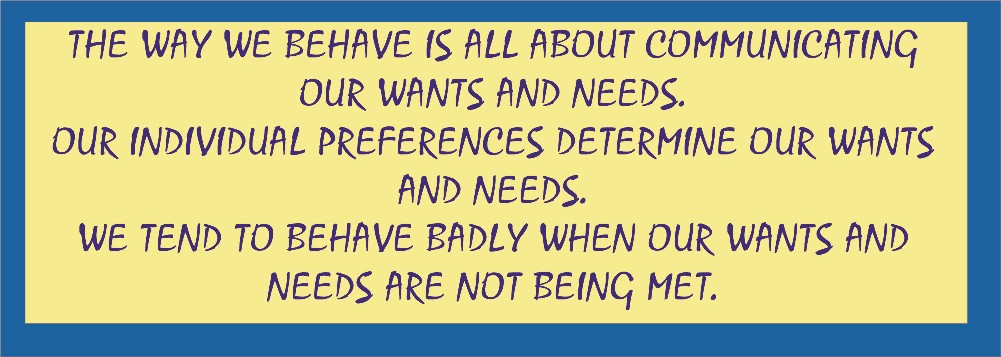|
Assessment of Persons Needing Accommodations and Supports: Communication
Disorders
Verbal Communication 1.
– Assume that the sample person cannot use between 1 and 5 verbalizations to
communicate needs.
Why not?
Does the person have a Communication Disorder or are
there cognitive or orthopedic impairments preventing verbalizations?
What
accommodations and supports are appropriate for this person?
Does the person have a Communication Disorder that impacts
verbalizations?
A communication disorder becomes evident when a person
exhibits a difficulty in communicating effectively. In this case, the term
“effective” can include an entire spectrum from total inability to create a
verbal expression, all the way to simple exercises for correcting pronunciation
errors. Communication Disorders can generally be classified as Speech Disorders
and/or Language Disorders.
There are cognitive impairments
that impact effective communication. These generally tend to be Language
Disorders There are orthopedic impairments that
impact effective communication. These tend to be Speech Disorders There are
social and psychological factors that impact
effective communication. These can be either or both types of Communication
Disorders.
In fact, the inability to communicate effectively can be a
characteristic of many other conditions that impact a person’s ability to learn.
What
accommodations and supports are appropriate for this person?
First, the diagnosis of a
communication disorder needs to be based on evaluations and assessments of a
certified Speech-Language Pathologist.
This professional is familiar
with therapeutic treatments and with augmentative and alternative communication
devices including assistive technological devices that can be as simple as an
amplifying device or as complex and a voice output device.
Working in collaboration with
such a professional, a multidisciplinary team will have an expert resource for
determining which therapeutic approaches will be most appropriate for the
individual person.
Does the person have a cognitive
impairment that impacts verbalizations?
Prior to PET scans and MRI scans, cognitive impairments
were typically evaluated by using some sort of behavioral evaluation tool. Now,
neuroscientists have the technological tools to determine very precisely, the
ways in which neurological insult and injury can impact verbalizations.
However, short of doing full neurological evaluations of
all persons that exhibit problems with verbalization, some of the old tried and
true behavioral tools can still be used to accurately predict how cognitive
impairment will impact verbalizations.
What cognitive accommodations and supports are
appropriate for this person?
The licensed School Psychologist
has been trained to administer cognitive and developmental tests and
assessments. These assessment tools generally produce a measure of the extent of
impairment in terms of what we commonly call a person’s intelligence quotient
(IQ). Typically, intelligence tests produce a percentile ranking for several
aspects of human intelligence that tend to conform with subsets of a generally
accepted definition of human intelligence itself.
Most IQ tests are administered
in a setting where the majority of the interactions between administrator and
the person consist of verbal exchanges. A person with poor verbalization skills
will typically not do well on such a test.
IQs have been a standard feature
of psychological assessment for a hundred years or more. Not everyone in the
professional community of psychologists agrees with typical theories of what
makes up human intelligence.
Typically, human intelligence is
being defined as having two main features – a measurement of our innate ability
to acquire knowledge and a measurement of our ability to retain and to apply
what knowledge we have acquired. In this case, the operative definition of
“knowledge” tends to include (depending on the specific standardization history
and upon the intended use of each specific assessment instrument) a very broad
range of human abilities and skills.
Does the person have an orthopedic
impairment that impacts verbalizations?
What
orthopedic accommodations and supports are appropriate for this person?
| 






 TABLE OF CONTENTS
TABLE OF CONTENTS